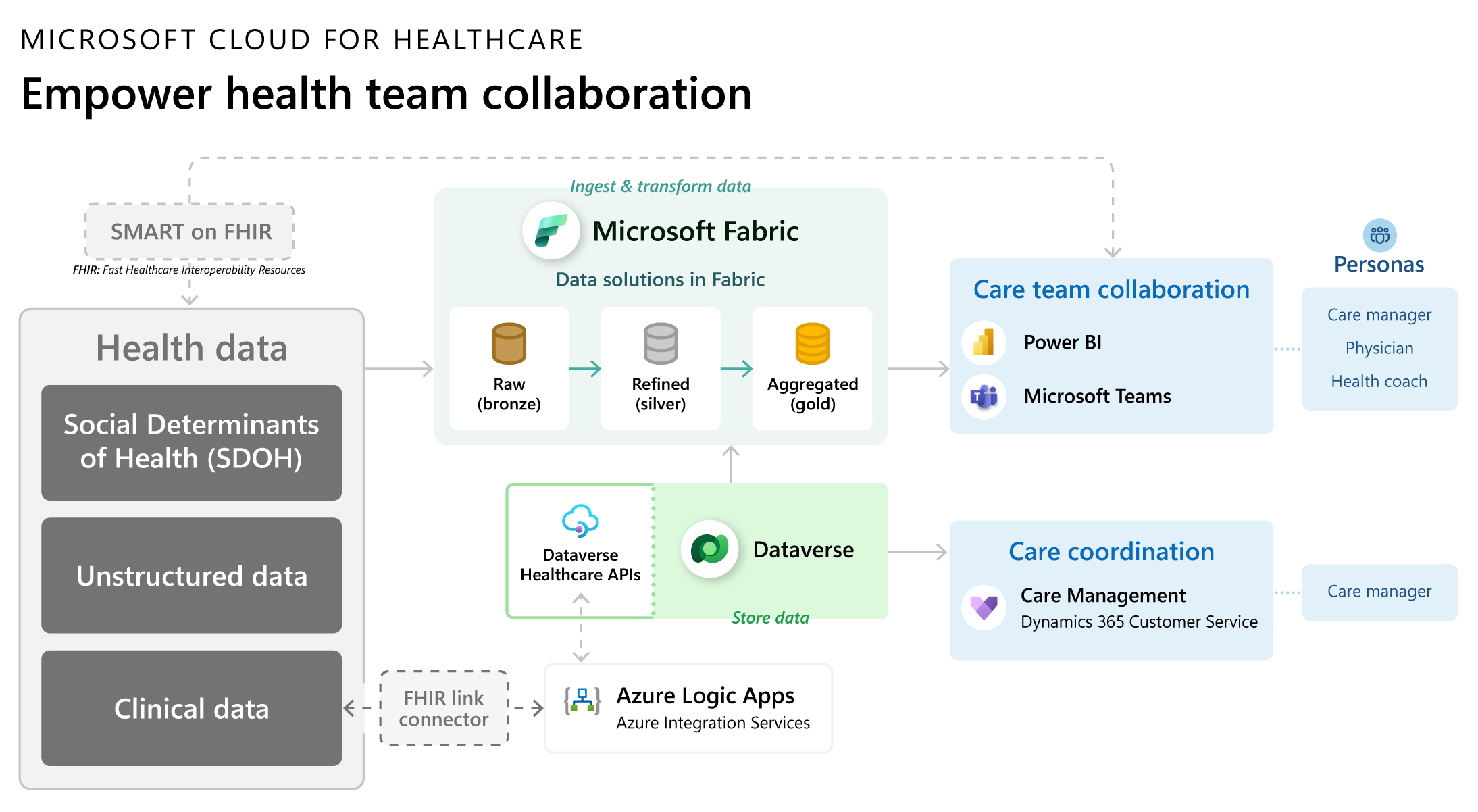Empower health team collaboration to coordinate care
Care coordination and collaboration are the foundation for quality, patient-centric care. Fragmented communication channels, siloed data, and incomplete patient information make it harder for health teams to make informed recommendations.
With the capabilities in Microsoft Cloud for Healthcare, you can improve the collaboration between your health team staff and care for their patients.
Download a printable PDF of this reference architecture diagram.
Care coordination
Communicate the right information, at the right time, to the right people to provide safe and effective care to the patient. Care management can be connected to the systems necessary for coordinating care across multiple locations and providers. These solutions use the unified patient view and institutional data to streamline care coordination.
Care team collaboration
Microsoft Teams for healthcare organizations helps share health information from any location and device securely. Microsoft Teams can also:
- Integrate FHIR-enabled electronic health records (EHR) data through the Teams development platform.
- Automate administrative tasks and enhance team productivity using task management and scheduling. These advancements allow members to focus on what matters the most.
You can share Power BI reports and dashboards across care teams and patients in Teams or via email.
Remote patient monitoring
[This capability isn't shown in the reference architecture diagram.]
Providers struggle to monitor patients outside of their clinical settings. Microsoft provides capabilities to connect care teams to remote monitoring tools. You can download a template for building a continuous patient monitoring application.
End-to-end workloads with FHIR-based protected health information (PHI) store describes more requirements for patient monitoring.
